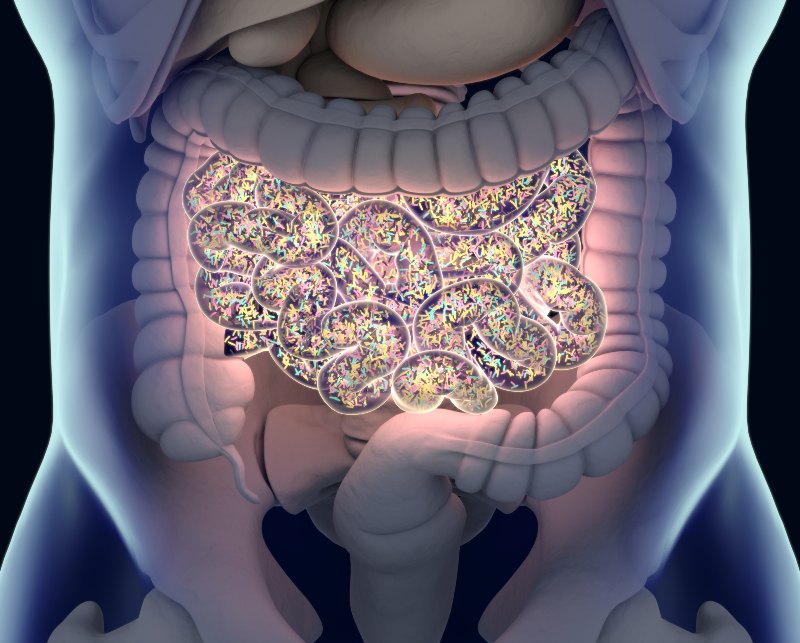Understand Your Gut Microbiome with the Experts in GA

What are Microbiome and Probiotics?
The microbiome refers to trillions of microorganisms residing in your gut, including bacteria, viruses, fungi, and other microbes. This diverse ecosystem plays a pivotal role in your overall health, influencing digestion, immunity, and even mental well-being.
Probiotics, on the other hand, are live beneficial bacteria or yeasts that you can consume through certain foods and supplements. These friendly bacteria are essential in supporting a balanced gut microbiome. Probiotics offer numerous benefits for digestive health and the rest of your body.
The Role of the Microbiome
Your gut microbiome is an incredibly dynamic environment that influences your digestive health significantly. It helps break down food, absorb nutrients, and produce essential vitamins. A healthy microbiome acts as a barrier against harmful bacteria and pathogens, reducing the risk of infections. It also communicates with the immune system, ensuring your body responds appropriately to potential threats.
Disruptions to the microbiome can lead to gut microbiome diseases such as inflammatory bowel disease (IBD), irritable bowel syndrome (IBS), and other digestive issues. Therefore, understanding what gut microbiome is and maintaining its balance is vital for good health. Our GI services can help you with this.
Benefits of Probiotics
Probiotics offer many health benefits by enhancing the composition of your gut microbiome. Some key probiotic health benefits include:
- Improved Digestion – Probiotics aid in breaking down food more efficiently, alleviating symptoms like bloating and constipation.
- Enhanced Immune Function – By promoting the growth of beneficial bacteria, probiotics support your immune system's ability to fight infections.
- Alleviation of GI Disorders – Studies have shown that probiotics can help manage symptoms of IBS and reduce the severity of IBD flare-ups.
- Better Mental Health – The gut-brain axis indicates that a healthy gut microbiome can positively impact mood and cognitive functions.
Sources of Probiotics
Probiotics can be found in various foods and supplements. Fermented foods are particularly rich in these beneficial bacteria. Some excellent sources include:
- Yogurt – A well-known probiotic-rich food that can improve gut health.
- Kefir – A fermented milk drink packed with diverse probiotic strains.
- Sauerkraut and Kimchi – Fermented vegetables that offer a robust mix of probiotics and fiber.
- Miso and Tempeh – Fermented soy products that are not only rich in probiotics but also protein.
- Probiotic Supplements – Available in pill, powder, or liquid form, these supplements provide concentrated doses of beneficial bacteria.
How to Maintain a Healthy Microbiome
- Eat a Diverse Diet – Consuming a variety of fruits, vegetables, and whole grains ensures a wide range of nutrients that promote a healthy microbiome.
- Limit Antibiotics – While necessary at times, antibiotics can disrupt the balance of your gut bacteria, so they should be used judiciously.
- Stay Active – Regular physical activity can positively affect gut microbiome diversity.
- Manage Stress – Chronic stress can negatively impact your gut health, so incorporating stress-reducing activities can be beneficial.
- Stay Hydrated – Drinking plenty of water supports the mucosal lining of the intestines, promoting a healthy microbiome.
Why Choose GI Specialists of Georgia?
Contact Us Today in Atlanta, GA
If you are interested in learning more about how the gut microbiome and probiotics can benefit your digestive health, or if you're seeking effective gut microbiome disease treatment, reach out to GI Specialists of Georgia. Our experienced team is ready to guide you on your journey to better health.
Don't wait to take charge of your digestive health. Contact us today to schedule a consultation and discover how we can support your gut health, digestion & microbiome support needs. Your well-being is our priority, and we are dedicated to helping you achieve optimal digestive health.
Explore our services and take the first step toward a healthier you.
Overview
Difficulty swallowing (dysphagia) means it takes more time and effort to move food or liquid from your mouth to your stomach. Dysphagia may also be associated with pain. In some cases, swallowing may be impossible.
Occasional difficulty swallowing, which may occur when you eat too fast or don’t chew your food well enough, usually isn’t cause for concern. But persistent dysphagia may indicate a serious medical condition requiring treatment.
Dysphagia can occur at any age, but it’s more common in older adults. The causes of swallowing problems vary, and treatment depends on the cause.
There Are Two General Categories of Dysphagia
- Esophageal dysphagia-issues with the esophagus (swallowing tube)
- Oropharyngeal dysphagia-issues with the mouth or throat (swallowing muscles)
Learn More about Swallowing Difficulty
Signs and symptoms associated with esophageal dysphagia may include:
- Having pain while swallowing (odynophagia)
- Being unable to swallow
- Having the sensation of food getting stuck in your throat or chest or behind your breastbone (sternum)
- Drooling
- Bringing food back up (regurgitation)
- Unexpectedly losing weight
- Having to cut food into smaller pieces or avoiding certain foods because of trouble swallowing
Symptoms of oropharyngeal dysphagia
- Difficulty initiating a swallow
- Hoarseness
- Chewing for long periods of time
- Drooling
- Weight loss
- Other neurological symptoms
For any issues with swallowing, please see a physician as this can be associated with serious or life-threatening condition. See your doctor immediately if you regularly have difficulty with swallowing , have associated weight loss or you are vomiting blood
If an obstruction interferes with breathing, call for emergency help immediately. If you’re unable to swallow because you feel that the food is stuck in your throat or chest, go to the nearest emergency department.
Esophageal Dysphagia
- Esophageal stricture. A narrowed esophagus (stricture) can trap large pieces of food. Tumors or scar tissue, often caused by gastroesophageal reflux disease (GERD), can cause narrowing. These can include esophageal rings(Schatzki’s ring)
- Esophageal tumors. Difficulty swallowing tends to get progressively worse when esophageal tumors are present.
- Foreign bodies. Sometimes food or another object can partially block your throat or esophagus. Older adults with dentures and people who have difficulty chewing their food may be more likely to have a piece of food become lodged in the throat or esophagus
- Eosinophilic esophagitis. This condition, which may be related to a food allergy, is caused by an overpopulation of cells called eosinophils in the esophagus.
- Motility issues including esophageal spasms, achalasia and presbyesophagus can alter normal function of the esophagus and cause difficulty swallowing
- Development of scar-like tissue, causing stiffening and hardening of tissues, can weaken your lower esophageal sphincter, allowing acid to back up into your esophagus and cause frequent heartburn.
- Radiation therapy. This cancer treatment can lead to inflammation and scarring of the esophagus.
Oropharyngeal Dysphagia
- Neurological disorders. Certain disorders — such as multiple sclerosis, muscular dystrophy and Parkinson’s disease — can cause dysphagia.
- Neurological damage. Sudden neurological damage, such as from a stroke or brain or spinal cord injury, can affect your ability to swallow.
- Pharyngeal diverticula. A small pouch that forms and collects food particles in your throat, often just above your esophagus, leads to difficulty swallowing, gurgling sounds, bad breath, and repeated throat clearing or coughing.
- Certain cancers and some cancer treatments, such as radiation, can cause difficulty swallowing.
The following are risk factors for dysphagia:
- Due to natural aging and normal wear and tear on the esophagus and a greater risk of certain conditions, such as stroke or Parkinson’s disease, older adults are at higher risk of swallowing difficulties.
- Certain health conditions. People with certain neurological or nervous system disorders are more likely to experience difficulty swallowing.
Difficulty swallowing can lead to:
- Malnutrition, weight loss, and dehydration. Dysphagia can make it difficult to take in adequate nourishment and fluids.
- Respiratory problems. Food or liquid entering your airway when you try to swallow can cause respiratory problems, such as pneumonia or upper respiratory infections.
Your doctor will likely perform a physical examination and may use a variety of tests to determine the cause of your swallowing problem.
Testing may include:
- X-ray with a contrast material (barium X-ray). You drink a barium solution that coats your esophagus, allowing it to show up better on X-rays. Your doctor can then see changes in the shape of your esophagus and can assess the muscular activity.
- Dynamic swallowing study. You swallow barium-coated foods of different consistencies. This test provides an image of these foods as they travel through your mouth and down your throat. The images may show problems in the coordination of your mouth and throat muscles when you swallow and determine whether food is going into your breathing tube.
- A visual examination of your esophagus (endoscopy). A thin, flexible lighted instrument (endoscope) is passed down your throat so your doctor can see your esophagus
- Esophageal muscle test (manometry). In manometry (muh-NOM-uh-tree), a small tube is inserted into your esophagus and connected to a pressure recorder to measure the muscle contractions of your esophagus as you swallow.
- Imaging scans. These may include a CT scan, which combines a series of X-ray views and computer processing to create cross-sectional images of your body’s bones and soft tissues; an MRI scan, which uses a magnetic field and radio waves to create detailed images of organs and tissues; or a positron emission tomography (PET) scan, which uses a radioactive drug (tracer) to show how your tissues and organs are functioning.
Treatment for dysphagia depends on the type or cause of your swallowing disorder.
Oropharyngeal Dysphagia
For oropharyngeal dysphagia, your doctor may refer you to a speech or swallowing therapist, and therapy may include:
- Certain exercises may help coordinate your swallowing muscles or restimulate the nerves that trigger the swallowing reflex.
- Learning swallowing techniques. You may also learn ways to place food in your mouth or to position your body and head to help you swallow.
Esophageal Dysphagia
Treatment approaches for esophageal dysphagia may include:
- Esophageal dilation. For a tight esophageal sphincter (achalasia) or an esophageal stricture, your doctor may use an endoscope with a special balloon attached to gently stretch and expand the width of your esophagus or pass a flexible tube or tubes to stretch the esophagus (dilatation).
- For an esophageal tumor, achalasia or pharyngeal diverticula, you may need surgery to clear your esophageal path.
- Difficulty swallowing associated with GERD can be treated with prescription oral medications to reduce stomach acid. You may need to take these medications for an extended period. If you have eosinophilic esophagitis, you may need corticosteroids.
If you have esophageal spasm but your esophagus appears normal and without GERD, you may be treated with medications to relax your esophagus and reduce discomfort.
Surgery
Surgery may be recommended to relieve swallowing problems caused by throat narrowing or blockages, including bony outgrowths, vocal cord paralysis, GERD, and achalasia, or to treat esophageal cancer. Speech and swallowing therapy is usually helpful after surgery.
Lifestyle and Home Remedies
If you have trouble swallowing, be sure to see a doctor and follow his or her advice. Also, some things you can try to help ease your symptoms include:
- Changing your eating habits. Try eating smaller, more frequent meals. Be sure to cut your food into smaller pieces and eat more slowly.
- Trying foods with different textures to see if some cause you more trouble. Thin liquids, such as coffee and juice, are a problem for some people, and sticky foods, such as peanut butter or caramel, can make swallowing difficult. Avoid foods that cause you trouble.
Schedule an Appointment with Our Atlanta-Area Gastroenterologists
"*" indicates required fields

